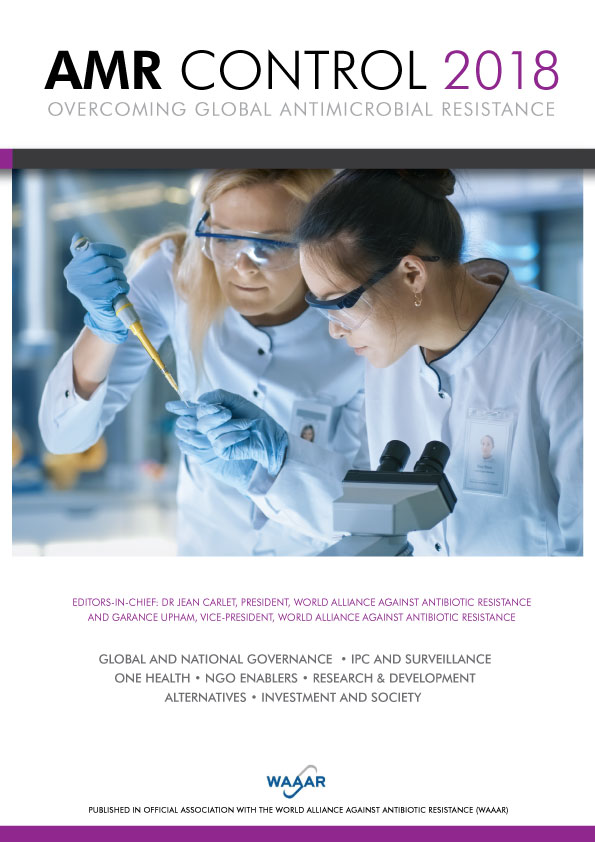Ahmed Elzawawy, Egypt, Hussein Khaled, Egypt, Sherif Omar, Egypt, Munir Kinay, Turkey, Atef Badran, Egypt and Aly Abdel Razek, Abu Dhabi, UAE
The South and East Mediterranean College of Oncology (SEMCO) is a nonprofit, nongovernmental initiative that aims to enhance professional and public education in all fields of cancer control, to expand scientific efforts and education to increase appropriate cancer management and to contribute in increasing human capacity building in order to raise the present modest contribution of the region in international cancer clinical trials to at least 10% of the world’s cancer trials by the year 2022.
SEMCO was founded in collaboration with the International Campaign for the Establishment and Development of Oncology Centres (ICEDOC) (www.icedoc.org) and affiliated to the Egyptian Foundation for Cancer Research (EFCR). SEMCO adopts the three “Cs” of ICEDOC, that welcome Cooperation, Collaboration and Coordination with all local, regional and international organizations and cancer societies.
SEMCO is a nongovernmental and nonprofit initiative that aims to enhance professional and public education in all fields of cancer and build capacities for relevant research in the South and East Mediterranean region.
Affiliation
SEMCO is affiliated to the Egyptian Foundation for Cancer Research (EFCR) and was founded in 2006 in collaboration with the International Campaign for the Establishment and Development of Oncology Centres (ICEDOC) itself founded in 1996 in the USA (www.icedoc.org).
Why SEMCO?
The South and East Mediterranean region extends from Turkey to Morocco and Mauritania. It lies at the centre of many regions and contains mixed characteristics that are reflected in cancer control and training as well. The region has ties to Europe as it is practically its southern and eastern neighbour. It is also a part of Africa and Asia through a border with Turkey. National incomes vary from high-income, small populations like the Emirates and Qatar to bigger, low-income, countries with variations from low-middle income countries like Egypt to high-middle income countries like Lebanon1. The variation in cancer management facilities and opportunities for training, research or even the types and profile of presentations of early or advanced cancer cases are not necessarily parallel to the level of income. Cancer of cervix is not among the most common cancer in Egypt (low-middle country), while stage III and IV cases of cervix cancer constitute a common problem in Saudi Arabia and the Gulf region (high-income countries). Breast cancer constitutes the most commonest cancer among women across the whole region2,3. Hepatocellular carcinoma attributed as a sequel to hepatitis C is one of the national cancer problems in Egypt3. This requires more intensified efforts in professional and public education, prevention and early detection that allows, until now, the only chance of successful management of this serious disease in Egypt.
Most professional cancer care providers and consultants either have been trained according to Euro-American curricula in their countries or in neighbouring countries. Medical education is mostly in English or French, but some have Arabic or a mixed English and Turkish medical education. Some have been trained or qualified in Western Europe, particularly the UK or France or in the USA. However, in general, English is understood by most physicians, but still Francophone, Arabophone and Turkish languages or mixed languages need to be taken into account in training or educational courses particularly for nursing.
Many professional cancer consultants and university staff already have links to or memberships of international bodies and attend at least one of the conferences or educational courses of the international, European, US or local organizations and cancer societies. However,
there is a lack of coordination locally, regionally and internationally; a lack of training in multidisciplinary balanced approaches to different aspects of cancer control that fits real regional conditions and as well as a lack of capacity building for relevant research and clinical trials as the region could be a considerable international contributor to cancer research.
Behind SEMCO is the successful experience of ICEDOC’s “Experts in Cancer Without Borders” in many parts of the world. Hence, SEMCO adopts ICEDOC’s three “Cs”: Cooperation, Collaboration and Coordination. The role of SEMCO is not to compete, but to cooperate.
The shared goals of ICEDOC are as follows4:
- To increase cancer management facilities in the world.
- To improve the quality of the existing services.
- To decrease the morbidity and mortality of cancer.
- To promote the activities of early detection of cancer that should be tailored for each region and to associate them with more availability of treatment facilities.
- To assist in tailoring cancer treatment protocols, modalities and departments according to specific conditions and the socioeconomic factors in each region taking into consideration the views of the local health care givers and community. The final results should lie within the range of acceptable results. There should be a double benefits for the patients and the progress of medicine.
- To conduct relevant research.
Board of SEMCO
- Honorary President: Professor Dr Sherif Omar
- Co-Presidents: Professor Dr Hussein Khaled and Professor Dr Ahmed Elzawawy
- General Director: Professor Dr Ahmed Elzawawy
- Manager: Dr Atef Badran
- Director of SEMCO Turkey: Professor Munir Kinay
- Director of SEMCO Gulf Region: Dr Aly Abdel Razek
Senior Scientific advisers and contributors are experts in cancer management in the South and East Mediterranean region.
Collaborators and alliances with SEMCO
- Arab Community Center for Economic and Social Services, USA (ACCESS)
- AfrOX, Oxford, UK
- Arab Medical Association Against Cancer (AMAAC)
- African Organization for Research and
- Training in Cancer (AORTIC)
- American Society of Clinical Oncology (ASCO)
- European Society of Medical Oncology (ESMO)
- CEDOC and ICEDOC’s Experts in Cancer without borders
- International Network for Cancer Treatment and Research (INCTR)
- The NCI, Global Health and Office of International affairs, USA
- South and East Mediterranean for Health Advance (SEHA)
SEMCO events
Examples include the following meetings in collaboration with national, regional, and international organizations:
- First SEMCO-ASCO Conference was held 5–6 April 2007 at the National Training Centre of the Ministry of Health in Cairo, Egypt. The conference included a multidisciplinary cancer management course. Course speakers were American, English, Italian, Belgian and Chinese and they covered modalities of cancer management, cancer screening and prevention, clinical trials in cancer with a special session for breast and urinary cancer.
- SEMCOESMO-ACOD Conference was held 5–7 December 2007 at the Palestine Hotel in Alexandria, Egypt, in collaboration with European Society of Medical Oncology and the Alexandria Clinical Oncology Department.
- Second SEMCO-ASCO Conference was held 26–28 March 2008 at Ain Shams University, Cairo, Egypt. The course was held in collaboration with ASCO and Ain Shams Clinical Oncology Department.
- Third SEMCO-ASCO Conference was held in Sesme City, Izmir, Turkey on 20–22 November 2008. It was a multidisciplinary cancer management course.
- Fourth SEMCO-ASCO Conference held in Cairo, Egypt from 15–17 April 2009. This was a special course on palliative care for cancer patients in collaboration with ASCO and the Institute for Palliative Medicine at San Diego Hospice. The conference offered the attendees a recognized EPEC-O course certificate.
- Fifth SEMCO-ASCO Conference held at the Gulf International Centre in Abu Dhabi, United Arab Emirates from 25–26 February 2010. The course was a multidisciplinary cancer management course (MCMC) with interactive sessions on breast, prostate after biology and management sessions.
- Sixth SEMCO-ASCO Conference entitled International Clinical Trial Workshop (ICTW) was held in Cairo, Egypt, 27–28 January 2011. The course covered the researchers’ need to increase clinical trials.
- SEMCO also arranged the Second Annual African Breast Cancer Conference organized annually by Princess Nikky Breast Foundation (Nigeria). The meeting was held 17–19 March 2009 in Cairo, Egypt.
- SEMCO was from the main contributor and local participant in the 8th International Cancer Conference organized by AORTIC also held in Cairo from 30 November – 3 December 2011.
The upcoming events and activities for 2013–2014 and after
SEMCO and ICEDOC will concentrate more on educational events and training that enhance more balanced multidisciplinary cancer management and control. This will disseminating the concepts and skills to establish more scientific care for cancer in the older population, palliative integrated oncology, the forgotten issue of more global care for professional cancer providers as an essential part of any hoped improvement of cancer control. There will be special emphasis on the partnership between the scientific activities of international win-win initiatives that aim at an increase in affordability and more access for better value cancer management tailored to patients and to each community5, 6.
ICEDOC and SEMCO will make every effort in the upcoming years to contribute with international bodies to the dissemination and wide adoption of new concepts, better value cancer management according to the notion published recently by Sir Muir Gray and David Kerr in their book How to get better value cancer care that follows the idea of a third revolution in health and goes with the third revolution in science and industry7.
We strongly believe that the SEMCO region could attract at least 10% of the international clinical cancer trials in the next ten years as it has most of the required facilities and some centres are already fully equipped. Hence, SEMCO in collaboration with ICEDOC, will continue holding workshops and training to increase the human capacity building for clinical cancer trials and for the coordination of the dispersed and fragmented best practice in the region and to discuss with concerned colleagues and authorities how to find the gaps and to overcome the real obstacles that hinder achievement.
Finally, we stress that SEMCO will continue to adopt the ICEDOC’s message that states “ICEDOC is a message of scientific cooperation in all fields of cancer control and management and love for all in the world”. Hence, SEMCO and ICEDOC will continue to enhance partnerships with all their alliances and welcome any constructive collaboration.
Professor Dr Ahmed Elzawawy is the President of ICEDOC and ICEDOC’s Experts in Cancer and Director of The South and East Mediterranean College of Oncology (SEMCO) www.semco-oncology.info. He is the President-elect of The African Organization for Research and Training in Cancer ( AORTIC), and a member of the Advisory Board of AfrOX, a member of The ESMO Developing Countries Task Force, and the International Coordinator of The Win-Win Initiative that aims at increased affordability of better value cancer treatment http://www.icedoc.org/winwin.htm.
Locally in Egypt, he is the Founder Chairman of Clinical Oncology department in Suez Canal University, Ismailia, and in Al Soliman Hospital, Port Said, Egypt.




